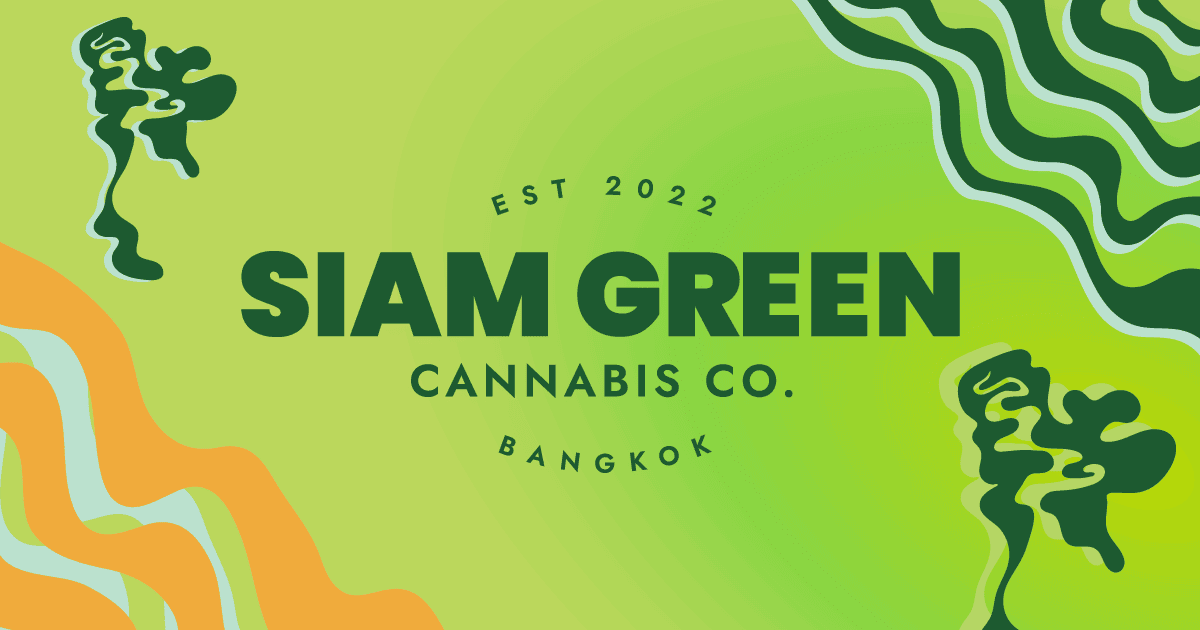- Dispensaries
-
Cultivars
By Cultivar Types
By Effects
By Terpenes
- Blog & Press
- About
- Products
All You Need to Know About Cannabis Edibles
- Cenk Cetin
- August 24, 2024
- 5:24 pm
- No Comments

Table of Contents
hide
Cannabis edibles are gaining popularity across the world including in Thailand as an enjoyable way to consume cannabis, especially for those who love sweets. Whether you’re new to edibles or a seasoned pro, understanding how they work, the variety available on the market, and the legal scope of edibles in Thailand is essential for a safe and enjoyable experience. In this article, we’ll walk you through everything you need to know about cannabis edibles, from how they’re made to what you can expect when consuming them. Maybe some of you just stopped by this article because you’re curious, or simply looking to try them for yourself, this guide has got you covered.
Key Takeaways
- Cannabis edibles, or edibles for short, are food products made with cannabis or cannabis extracts.
- Edibles come in variable forms such as gummies, brownies, cookies, and drinks.
- Consuming cannabis edibles while sick may worsen the symptoms, conversely, they may also help you deal with irritating symptoms like coughing.
- Edibles with sativa strains can help boost your energy while CBD and THC edibles may help with managing anxiety and relieving pain as well as other lesser-known cannabinoids like CBN and CBG.
- It takes a little longer for cannabis edible effects to kick in which can cause overconsumption.
- Edibles do not affect our lungs, unlike smoking weed.
- Several countries in the world legalized the recreational use of weed such as Canada, the USA, Germany, South Africa, and Thailand.
What are cannabis edibles?
According to the Public Health Institute at Denver Health, cannabis edibles are food products made with cannabis or cannabis oils (extracts). “Edibles” is a short form to call cannabis edibles, they come in many different forms – including brownies, cookies, candies like gummies and chocolate, drinks, and popcorn along with many other food products. Cannabis extractions within edibles contain two main active compounds, THC which delivers an intoxicated effect, and CBD which contains lesser THC content which is less likely to cause the high effect. Apart from smoking weed, edibles become popular as an alternative way to consume cannabis.
How do cannabis edibles affect us when we’re sick?
Cannabis may cause blood pressure, it tends to increase the risk of fainting or lightheadedness. Therefore, consuming large doses of cannabis edibles while being sick may worsen symptoms if you already experience weakness or dizziness caused by a common cough, cold, or flu. An MD Chief Medical Officer Dr. Brian Kessler suggested that consuming cannabis edibles can help people alleviate feelings of nausea. However, it’s also important to note that if you are already feeling unwell, the intoxicated effects of THC within the edibles could potentially make you feel worse. Consuming edibles while experiencing a cold may increase the severity of cold or flu-related stomach symptoms such as stomach pain, nausea, and vomiting, especially if you normally have this reaction when using weed (Cannabinoid Hyperemesis Syndrome). Conversely, cannabis may offer analgesic and anti-inflammatory effects.
Consuming edibles won’t necessarily ease your cough if you have an underlying cough. However, cannabinoids from cannabis have an impact on the nervous system and play a crucial role in immune system regulation. That said, drinking cannabis-infused tea may soothe a cough and provide temporary relief from coughs and colds. So, cannabis can’t cure or make your illness go away, but it can potentially help you deal with and alleviate irritating symptoms.
Which edibles are best for energy, anxiety, and pain relief?
Cannabis is not one-size-fits-all, therefore, it’s important to find the right product for your needs. Sativa-dominant weed strains are what many people refer to when they want to have an energy boost as they are low-THC strains compared to Indica-dominant strains which are high-THC strains. Sativa cannabis strains are more likely to contain high terpenes such as pinene, limonene, and beta-caryophyllene which are associated with mental stimulation and focus.
CBD-infused products such as gummies, chocolates, and tinctures are the most recommended types of edibles for pain relief as CBD has anti-inflammatory and analgesic properties without the psychoactive effects. THC can also help alleviate the pain, but due to its psychoactive effects that cause intoxicated feelings to consumers may not be ideal for everyone. A balanced ratio of CBD and THC as well as other minor cannabinoids like CBN and CBG can provide the best result for pain relief without undesirable side effects. However, it’s important to consult with a healthcare provider to find the most suitable one.
CBD is also known for its potential to modulate anxiety without inducing the euphoric high associated with THC. Although THC has psychoactive properties, it can contribute to the relief of anxiety. However, it’s important to note that high levels of THC can have the opposite effects and cause greater anxiety in some people. Edibles with a balanced ratio of both THC and CBD offer anxiety relief. However, to determine the effectiveness of edibles in managing anxiety, one should consider the specific composition of the cannabinoids, the strain, and other factors such as dosage and the sensitivity of the individual.
Do cannabis edibles have any potential risks?
The concentrations of THC can vary in cannabis products. Ingesting cannabis edibles offers long-lasting effects, much longer than smoking. They also take more time to feel the hit which can take between 30 minutes and up to 2 hours to experience the effects of edibles. This delayed onset may result in some people taking a greater amount of edibles than intended before the weed has taken effect. Consuming weed this way can also increase the risk of visiting an emergency room for cannabis overdose from overconsumption.
Weed edibles can cause some adverse effects which may include:
- Drowsiness
- Vomiting
- Confusion
- Anxiety and panic attacks
- Hallucinations
- Paranoia
- Psychotic episodes
- Agitation
- Impaired motor ability
Regular cannabis use can lead to other serious health effects such as brain development, heart health, psychiatric health, and memory and cognition. Cannabis products including edibles and other forms of cannabis can interact with medications which may intensify the effects of THC or interfere with the actions of the medicines. Another thing that should be mindful of after purchasing weed edibles is that there is a possibility that children, pets, and others such as pregnant women can accidentally ingest cannabis-infused products like cookies and candies – which may cause danger to the individual.
Will cannabis edibles affect our lungs?
A director of the UCI Center for the Study of Cannabis in Irvine, California Daniele Piomelli suggested that cannabis edibles do not irritate or harm bronchi and lungs as well as do not cause chronic cough and phlegm production – the two most common effects from smoking weed. Unlike smoking weed, the cannabinoids go directly to the lungs before entering the bloodstream and circulating to the brain and the rest of the body. As a result, it can cause adverse effects on respiratory health including your lungs.
Where cannabis edibles are legal around the globe?
Weed-Friendly Countries in North, South, and Central America
Canada – Weed is legal both for medical and recreational purposes in Canada which has been effective since October 17, 2018. Adults who are at least 18 years of age are legally able to possess, share weed with other adults, purchase, grow, and make cannabis products at home. A year later, on October 17, 2019, cannabis edible products and concentrates were legal for sale up until today.
The United States – Updated recently on April 2024, recreational weed is legal in 24 states of the United States including Alaska, Arizona, California, Colorado, Connecticut, Delaware, Illinois, Maine, Maryland, Massachusetts, Michigan, Minnesota, Missouri, Montana, Nevada, New Jersey, New Mexico, New York, Ohio, Oregon, Rhode Island, Vermont, Virginia, and Washington. Recreational cannabis use in states where it is legal is limited to adults 21 years of age and older.
Weed-Friendly Countries in Europe
Malta – In 2021, Malta became the first country in Europe to legalize recreational cannabis use, allowing consumers to possess, buy, and grow adult-use cannabis. A person over the age of 18 years old can possess cannabis in an amount not exceeding 7 grams. Malta also established cannabis social clubs which must be registered with the Authority on the Responsible Use of Cannabis (ARUC) – the nation’s cannabis regulatory authority.
Luxembourg – Luxembourg became the second country in Europe to legalize adult-use cannabis in 2023. The consumption of cannabis and cannabis products by adult persons (18 years old and older) in private residences or homes is legal and consumption in the presence of minors is prohibited.
The Netherlands – In the Netherlands, the possession, sale, or production of drugs is illegal, that includes cannabis. However, coffee shops (establishments where cannabis is legally sold but alcoholic drinks are not allowed to be sold or consumed) are permitted to sell cannabis under strict conditions. The coffee shops in the Netherlands are not permitted to sell over 5 grams of cannabis in a single transaction or per person. People under the age of 18 years old are not permitted to enter or buy weed from the coffee shops.
Spain – THC is the only illegal cannabinoid in Spain. At the same time, CBD products containing less than 0.3% THC are considered legal and they are widely sold across Spain in boutiques, natural food stores, and similar locations. Regardless of whether they are locals or foreigners, people can access weed in Spain by becoming a member of a cannabis social club which is a non-profit private organization where members can grow, purchase, and consume cannabis in a social setting. Newcomers are all welcome to the social club as long as they are at least 18 years old and have a valid ID.
Germany – People over 18 in Germany are allowed to own and carry 25 grams of weed for consumption effective since April 1, 2024. The new rules mean adults can possess small amounts for personal use but cannabis remains illegal for minors (those under 18 years old) and highly restricted for young adults. Therefore, consuming cannabis near schools and playgrounds is illegal.
Weed-Friendly Countries in Asia and Africa
South Africa – With recent changes, THC, the psychoactive component of cannabis, has moved to the less restrictive category, permitting the use of regulated products which includes edibles. CBD-infused edibles are now widely available and legal in many areas of the country. Cannabis edibles can be legally purchased in South Africa from licensed dispensaries and online stores and only adults who are at least 18 years of age are able to purchase cannabis products.
Thailand – Weed including edibles have been legal in Thailand since 2022. According to the Medical Cannabis Institute of the Ministry of Public Health, cannabis extracts should not exceed 0.2% THC. Extracts. Any cannabis products containing more than 0.2% THC are strictly prohibited and could lead to penalties. Only those at least 20 years of age can purchase and possess cannabis products in Thailand.
Conclusion
Cannabis edibles are food products infused with cannabis extracts. Edibles are popular for their variety ranging from gummies to drinks – containing both THC and CBD providing different effects. However, they come with potential risks such as delayed onset of effects resulting in the possibility of overconsumption. While edibles can offer benefits like relieving pain and anxiety, they can also exacerbate symptoms when consumed while sick. Globally, the legal status of weed edibles varies, some countries like Canada, Malta, and Thailand allow their use under specific regulations.



